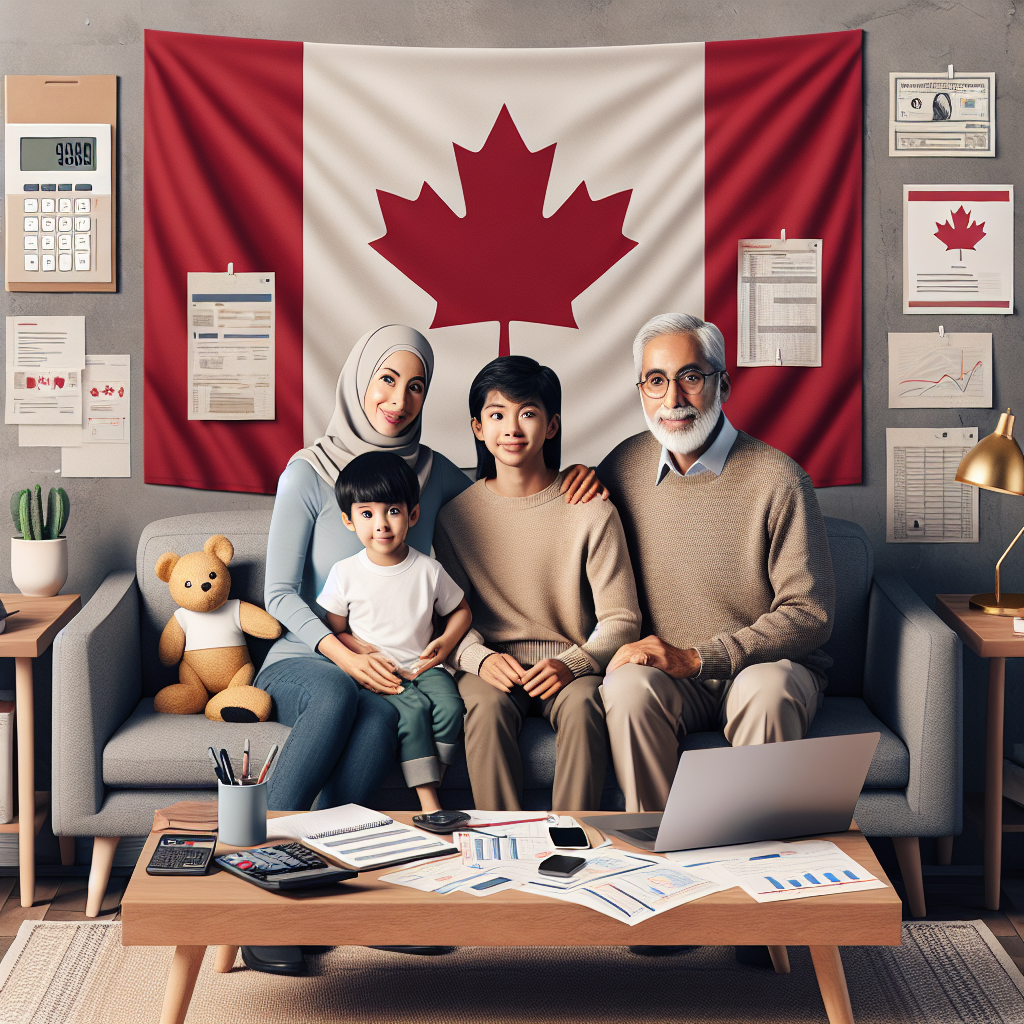Canada Raises Income Thresholds for Parents and Grandparents Program

Navigating the New Income Requirements for Canada’s Parents and Grandparents Program
As of 2025, Canada’s Immigration, Refugees and Citizenship Canada (IRCC) has announced updated income thresholds for citizens and permanent residents looking to sponsor their parents or grandparents through the Parents and Grandparents Program (PGP). This change, which raises the minimum income requirement to $47,549 for 2024—up from $44,530 in 2023—reflects a significant shift in the financial expectations for potential sponsors.
Key Changes in Income Requirements
For those looking to sponsor family members, the income requirements now hinge on the size of the family unit. Applicants must demonstrate adequate financial means over the three tax years preceding their application—2022, 2023, and 2024. Here’s a snapshot of the new minimum income requirements based on family size:
- 2 people: $47,549
- 3 people: $58,456
- 4 people: $70,972
- 5 people: $80,496
- 6 people: $90,784
- 7 people: $101,075
- Additional members: $10,291 per person over seven
Sponsors can meet these requirements individually or through the combined income of a co-signing spouse or common-law partner.
Understanding Family Size Calculations
It’s essential to accurately assess family size when applying, as it directly impacts the income needed. Family size counts not just the applicants but also includes:
- The applicant and their spouse or common-law partner (whether living together or separated).
- All dependent children and their dependents.
- Any previously sponsored family members and their dependents.
- The proposed principal applicants (parents or grandparents) and their family members, regardless of their residency status in Canada.
Application Process Overview
The IRCC plans to send out approximately 17,860 invitations to potential sponsors starting July 28, 2025, with an aim to accept 10,000 complete applications. This lottery system has been necessary due to the overwhelming demand for the PGP, which has historically outstripped available spots. The last opportunity to submit interest forms was in 2020, making this a highly anticipated event for many Canadian families.
Alternative Options: The Super Visa
For those unable to navigate the lengthy PGP application process, the super visa program presents a viable alternative. This allows parents and grandparents of Canadian citizens or permanent residents to visit for up to ten years, with the possibility of staying for five consecutive years at a time. Sponsors must, however, meet specific income requirements and ensure their relatives possess valid health insurance and travel documents.
Insightful Analysis
The increase in income requirements signals a growing recognition of the financial pressures associated with sponsoring family members. As the cost of living rises, the IRCC appears to be placing greater emphasis on ensuring that sponsors are financially equipped to support their loved ones, thereby enhancing the program’s integrity.
However, this adjustment also highlights the barriers many families may face in uniting with their parents and grandparents in Canada. The increased financial burden may discourage some potential sponsors, particularly those who are already stretched thin in a challenging economic landscape.
Moreover, the reliance on a lottery system raises questions about fairness and accessibility. While it aims to manage overwhelming demand, it may inadvertently exclude deserving families who do not have the opportunity to participate in the lottery.
Conclusion
As Canada continues to evolve its immigration policies, prospective sponsors must stay informed about these changes to navigate the complexities of family sponsorship. Understanding the new income requirements and alternative options like the super visa can empower families to make informed decisions about reuniting with their loved ones. In an increasingly interconnected world, the ability to bring families together remains a cornerstone of Canadian immigration policy, yet it also underscores the need for continuous evaluation and adaptation to meet the needs of all Canadians.



